Hans Sebald Beham
Playing cards designed by Hans Sebald Beham (1500–1550).
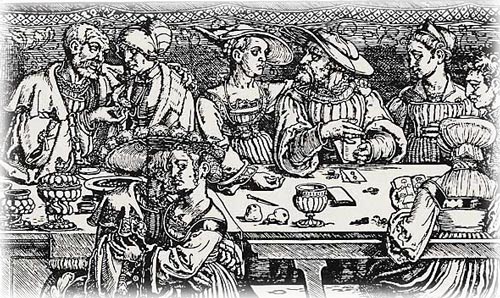
Hans Sebald Beham playing cards, c.1523
Hans Beham was born in Nuremberg in 1500. Tradition suggests that he received tuition from Dürer. He began his career in 1519 using the monogram H.S.P. and this pack of woodblock playing cards was produced when he was 23 years old. He continued to work in his home town until 1525 when he was exiled for heresy. He is next known at Frankfurt in 1531, having changed his monogram to H.S.B. He died in Frankfurt on November 22, 1550.

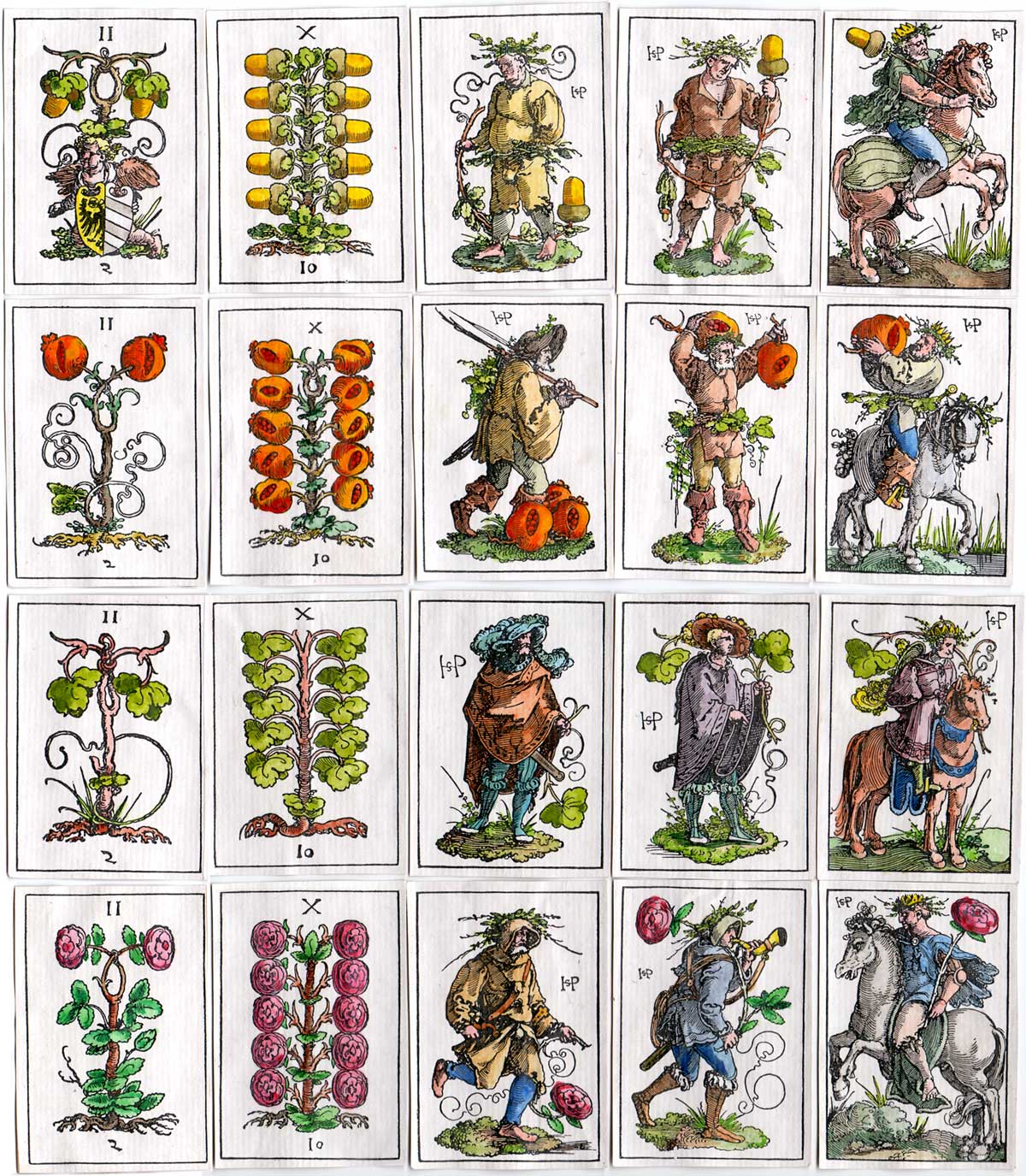

Above: cards from hand-made facsimile copy of the pack made from black & white outlines painted with watercolours, total 48 cards, 2014. The colours are not necessarily authentic. Size of original cards: 94x64 mm. The number cards have the suit symbols growing from a central trunk, and run from deuce (2) to 10 (without banners) which are index marked in Roman numerals at the top and Arabic numbers at the bottom. Apart from the three of acorns, there are no vignettes of country scenes or animals on the numeral cards.
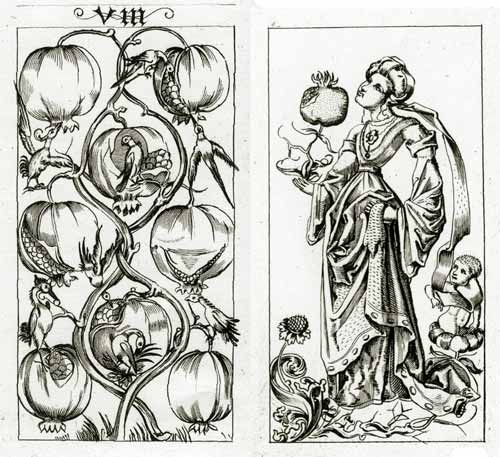
Above: the pomegranate as a suit sign is also found in the latin-suited pack of cards by the South German Engraver (c.1496) which has 52 cards running from Ace to banner 10, female 'Sota', horseman and king. Many cards are decorated with young children or animals playfully cavorting between the suit symbols. In this case the suit sign of pomegranates probably alludes to the recently reclaimed kingdom of Granada.
The composition of the pack is deuce → ten, unter, ober and mounted king in each of the suits of acorns, pomegranates, leaves and roses. The deuce would have been the highest card as there were no aces. At this time the German suit-system was not yet standardised and packs are known with different systems involving everyday objects such as flowers, animals, birds, hunting equipment or coats of arms. Packs of the German suit system both with the values 1 → X and deuce → X are known. Mounted kings are also found on many sets of German playing cards into the 16th century.
The pomegranate as a suit sign is again found in the latin-suited pack of cards by the South German Engraver (c.1496) which has 52 cards running from Ace to banner 10, female 'Sota', horseman and king.
Some of the images from Hans Beham's cards were copied by other engravers from Nuremberg, in one particular case a latin-suited pack containing knave, cavalier and king.

By Simon Wintle
Spain • Member since February 01, 1996 • Contact
I am the founder of The World of Playing Cards (est. 1996), a website dedicated to the history, artistry and cultural significance of playing cards and tarot. Over the years I have researched various areas of the subject, acquired and traded collections and contributed as a committee member of the IPCS and graphics editor of The Playing-Card journal. Having lived in Chile, England, Wales, and now Spain, these experiences have shaped my work and passion for playing cards. Amongst my achievements is producing a limited-edition replica of a 17th-century English pack using woodblocks and stencils—a labour of love. Today, the World of Playing Cards is a global collaborative project, with my son Adam serving as the technical driving force behind its development. His innovative efforts have helped shape the site into the thriving hub it is today. You are warmly invited to become a contributor and share your enthusiasm.

Leave a Reply
Your Name
Just nowRelated Articles
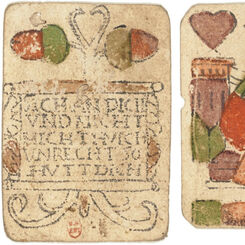
Early German playing cards
Some early examples of popular German playing cards from the XV and XVI centuries.
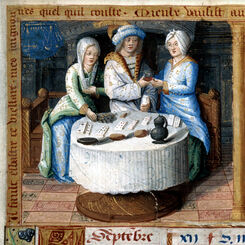
Gambling and Vice in the Middle Ages
Gambling and Vice in the Hours of Charles V: card-playing in the local tavern

Iohann Christoph Hes Tarot c.1750
Facsimile of Tarot de Marseille by Iohann Christoph Hes, Augsburg, c.1750.
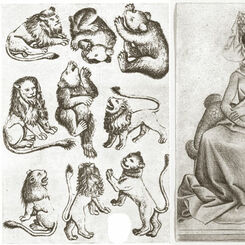
Master of the Playing Cards
Animal suited playing cards engraved by the Master of the Playing Cards, Germany, c.1455
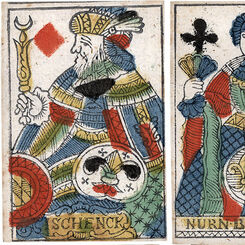
I. Schenck, Nuremberg
I. Schenck, Nuremberg, late XVIIIth century
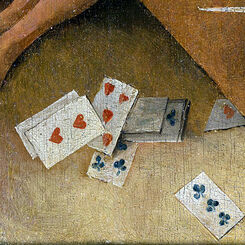
Hidden meanings in painting by Jheronimus Bosch
Medieval View of Gambling in the ‘Garden of Earthly Delights’ by Jheronimus Bosch
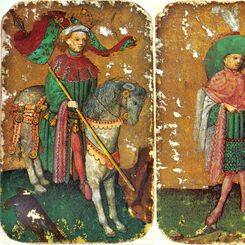
Stuttgart pack, c.1430
The luxury, hand-painted Stuttgart Cards (Stuttgarter Kartenspiel) dated c.1430, with suits of ducks...
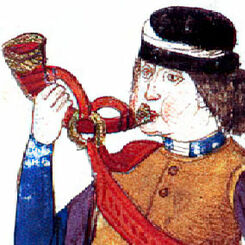
Flemish Hunting Deck
Set of medieval playing cards with King, Queen, Knave and numeral cards from one to ten in each of f...

Old Bavarian pattern
Uncut sheets of playing cards of the Old Bavarian pattern by Michael Schatzberger, Passau, c.1780.
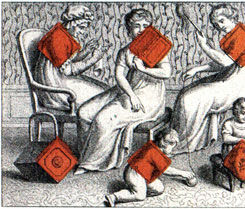
Cotta Transformation playing cards
In 1804, J.G. Cotta, a publisher and bookseller in Tübingen, Germany, produced the first set of tran...
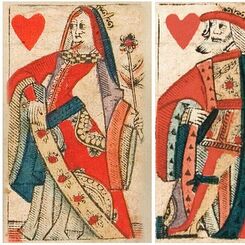
Pierre Marechal
Rouen became an important centre for card-making whose influence extended far afield. Cards from Rou...

The Beggars’ Opera
The Beggars’ Opera Playing Cards were first published in 1728. The cards carry the words and music o...
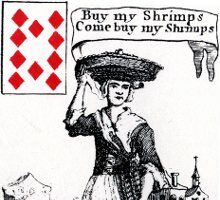
Cries of London
The cards were printed from copper plates, with the red suit symbols being applied later by stencil....
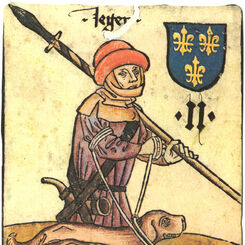
Hofamterspiel, c.1460
Hofamterspiel, c.1460
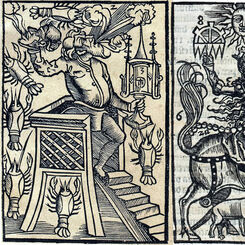
Logica Memorativa
Logica Memorativa playing cards by Thomas Murner, Brussels, 1507.

The Princely Hunting pack, c.1440
The Princely Hunting Pack, c.1440/45, is attributed to Konrad Witz and his workshop in Basle.
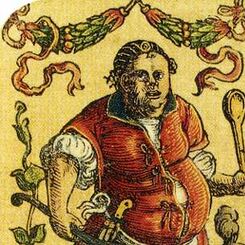
Peter Flötner, c.1545
Seven cards from a satirical pack produced by Peter Flötner of Nuremberg, c.1545. The suit symbols a...
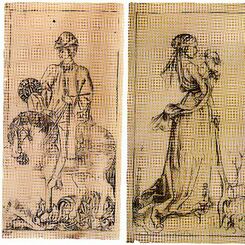
Early German Engraved Playing-cards
During the second half of the fifteenth century, with printing technology commercially established a...

Playing cards in the Upper Rhine region
Documentary evidence suggests that card playing established itself in Italy in 1376, and then spread...
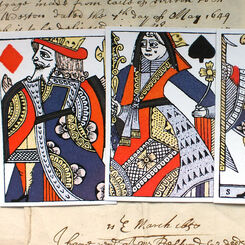
Hewson Replica Pack
Hand-made replica 17th century English playing cards, based on museum originals.
Most Popular
Our top articles from the past 60 days


 Your comment here. Your comment here. Your comment here. Your comment here. Your comment here. Your comment here. Your comment here. Your comment here. Your comment here. Your comment here. Your comment here. Your comment here. Your comment here. Your comment here. Your comment here. Your comment here. Your comment here. Your comment here. Your comment here. Your comment here. Your comment here. Your comment here. Your comment here. Your comment here. Your comment here. Your comment here. Your comment here. Your comment here. Your comment here. Your comment here. Your comment here. Your comment here.
Your comment here. Your comment here. Your comment here. Your comment here. Your comment here. Your comment here. Your comment here. Your comment here. Your comment here. Your comment here. Your comment here. Your comment here. Your comment here. Your comment here. Your comment here. Your comment here. Your comment here. Your comment here. Your comment here. Your comment here. Your comment here. Your comment here. Your comment here. Your comment here. Your comment here. Your comment here. Your comment here. Your comment here. Your comment here. Your comment here. Your comment here. Your comment here.




















